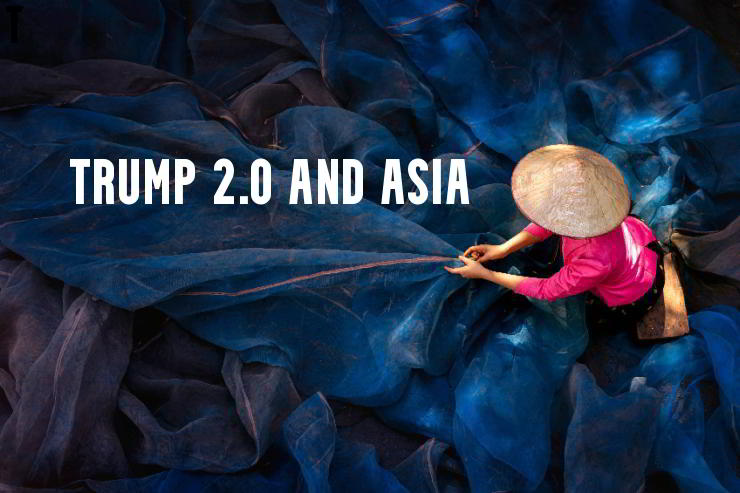It is more complex than it seems.

Donald Trump is set to take office this month after being re-elected in the 2024 US presidential elections. His comeback has sparked considerable unease across foreign governments, including Washington’s allies and Asian rivals.
During his first term in office (2017-2021), unpredictability was a hallmark of Trump’s foreign policy: he sought to facilitate dialogue between North- and South Korea, but simultaneously escalated US-China tensions and withdrew from key regional agreements such as the Trans-Pacific Partnership.
However, since his demise in early 2021, the world has changed profoundly. The global impact of the COVID-19 pandemic has reshaped societies, elevating economic security to a top priority on national agendas. Simultaneously, the two major conflicts in Ukraine and the Middle East have taken centre stage in international affairs. This evolving landscape, coupled with shifting power dynamics among global actors, introduces challenges not present during Trump’s first term.
Why it is so important
A Tough Line on Beijing. Donald Trump’s stance on China may appear straightforward, but it is more complex than it seems. On the one hand, he has already vowed to take a tougher stance than Joe Biden, proposing to raise tariffs on Chinese imports to 60%.
Trump’s political strategy of framing China as a severe threat has proven effective among his base, and he is likely to double down on this narrative. However, Trump’s inner circle includes influential business figures like Elon Musk, who has significant investments in China and could influence the President elect’s behaviour toward Beijing.
Uncertainty in South Korea and Japan. Washington’s allies in East Asia are approaching Donald Trump’s return with caution. During his first term, Japan was led by Shinzo Abe, who cultivated a close personal relationship with Trump. This relationship encouraged Trump to adopt the Indo-Pacific strategy promoted by Japan, making the region a key focus of US foreign policy.
Today, however, Japan’s political landscape is less stable making it harder to replicate such personal ties with Trump’s team. Nevertheless, Japan is one of the few US allies whose increasing defense spending aligns with Trump’s preferences.
In South Korea, President Yoon Suk-yeol faces a more delicate situation. There are concerns in Seoul that Trump might revive his personal rapport with North Korean leader Kim Jong-un, potentially sidelining South Korea’s interests, while on the other hand demanding an increased burden-sharing commitment for its security.
The Brewing Storm on the Seas. The South China Sea remains a major flashpoint for escalating tensions between Washington and Beijing. On the Taiwan front, Trump’s stance has oscillated between open hostility toward Beijing and support for Taiwan’s government, while also suggesting that Taipei should bear a greater share of the costs for US military protection.
Additionally, he has criticized Taiwan’s role in the global semiconductors manufacturing sector, implying that the island has taken advantage of the US economy. Taiwanese President Lai Ching-te has already begun efforts to strengthen ties with the new Trump administration, but it remains unclear how Trump will respond to potential Chinese provocations.
Similarly concerned are Southeast Asian countries like the Philippines, which oppose Chinese encroachment in the South China Sea and fear a reduction in US military engagement under Trump – thus leaving them more vulnerable to Beijing’s regional ambitions. For example, despite Philippines President Ferdinand Marcos Jr.’s efforts to deepen military alliance with the US, Trump’s transactional foreign policy style could complicate these initiatives.
Modi Hopes to Capitalize on Trump’s New Presidency. Indian Prime Minister Narendra Modi sees Trump’s return as an opportunity to advance India’s interests.
With Trump’s tough stance on China, Modi hopes to deepen defense and economic ties with Washington, leveraging this renewed partnership to counterbalance Beijing’s growing influence in the Indo-Pacific.
India is particularly keen to enhance its strategic partnership with the US in critical areas such as technology, infrastructure, and defense procurement. (Photo:123rf)
Filippo Fasulo/ISPI



